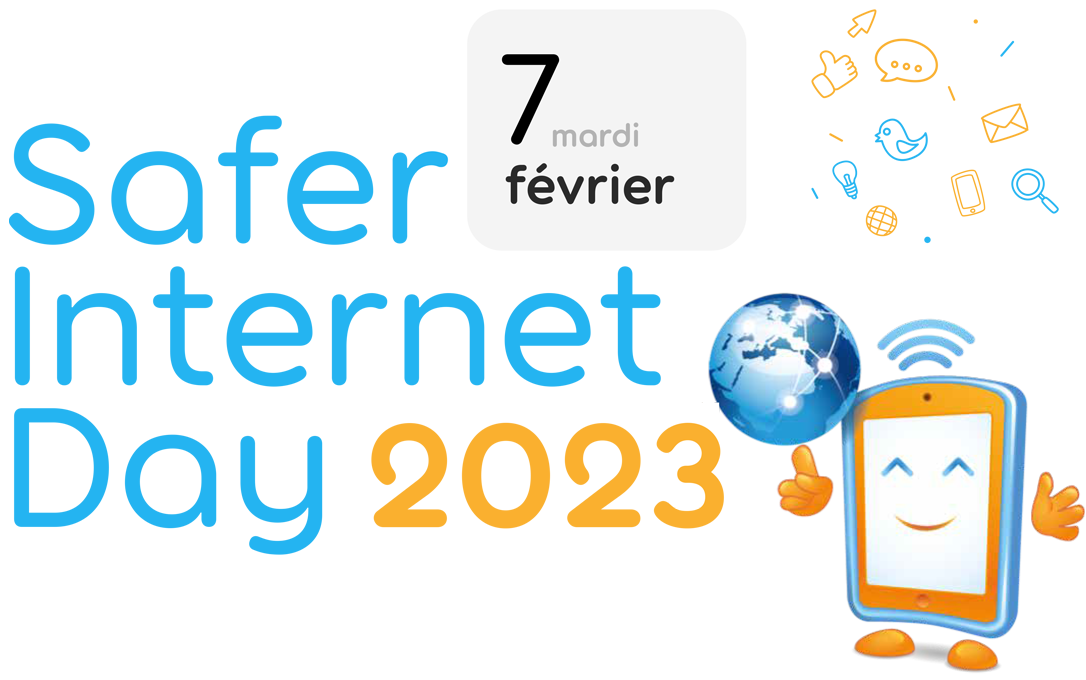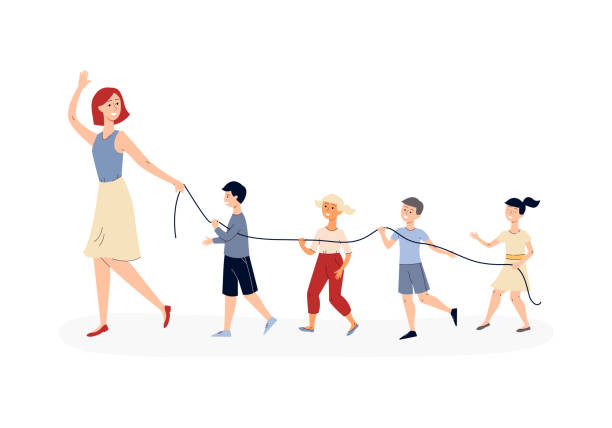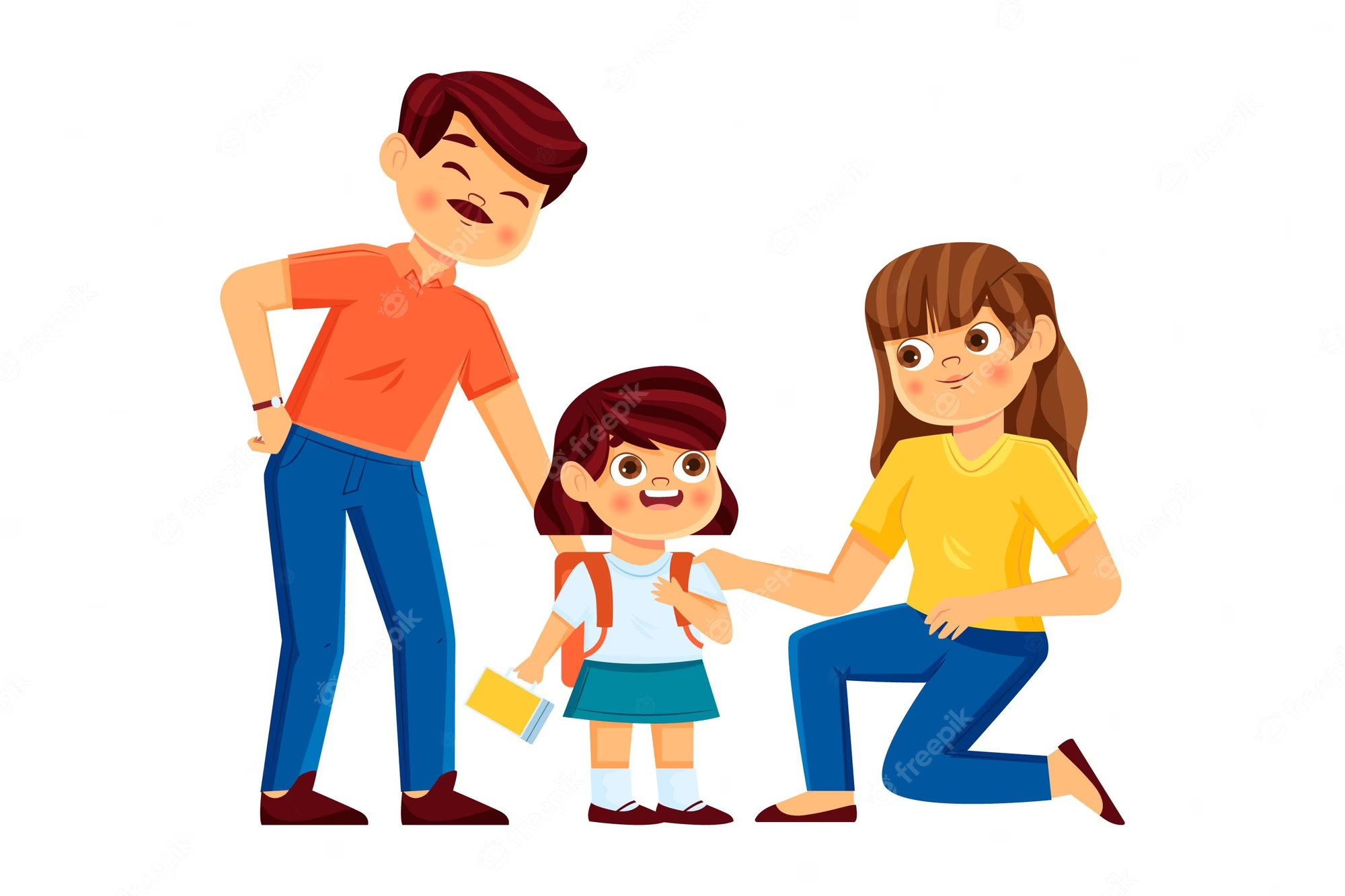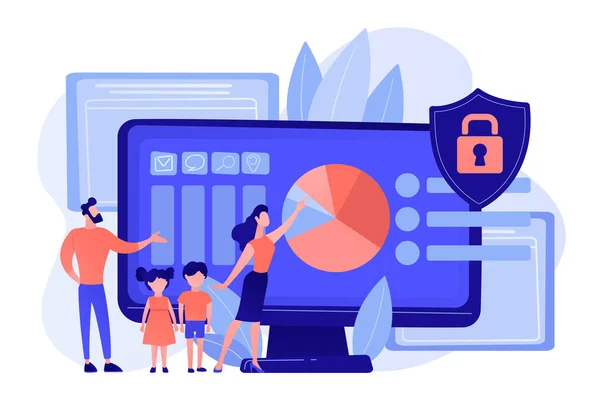Protecting Your Child Online: Tips for Safer Internet Day

“Safer Internet Day” or “Safer Internet Day” is an annual “celebration” (in quotes, because it is more of a reminder than a celebration) which aims to create a safer online environment for children and young people. This is a crucial reminder for parents and caregivers to take an active role in keeping children safe online. With the increasing use of technology, it is more important than ever to protect our children from the potential dangers that come with it.
Tips for protecting children/young people
The list below is of course not exhaustive and only gives tips to help you:
1. Education et Communication
Personally, I find this point to be the most important because it highlights the importance of educating children to use the Internet but also to have no problem communicating with you as soon as they find a problem. on the internet.
Teach your child about the dangers of the Internet, such as online harassment, phishing, and sharing personal information. Make sure they understand the importance of privacy and the consequences of (high) online exposure.
It's also important to maintain open communication with your children about what they are doing online. Ask them questions about their online activity and encourage them to tell you about anything they see or feel.
As soon as your child starts accessing the internet, talk to them about what they read, what they watch and who they communicate with online - and continue the conversation as they get older. Ask your child what sites they visit or apps they use, make a list, and look at them together. Discuss with your child what you think is appropriate, and remind them that this may be different for other parents and their children. Listen to your child and agree on what is right for your family.
Remember that the time will come when they will have access to the Internet outside of the safety of home and you want them to be prepared for that. It is essential to teach them to know their online reputation and to be careful about how they behave, interact with people and represent themselves in such a public forum. They must always remember that the Internet is not private and above all the Internet does not forget anything.

Self-eduquer
Self-education is very important for a parent. You have to stay up to date with the latest technologies, the latest social networks and understand how to be safe online so that you can pass it on to your children/young people.
Join the same networks and apps as your children and familiarize yourself with privacy settings and reporting/protection mechanisms. Then teach your children about reporting inappropriate messages, blocking someone, keeping information private, and the need to speak to someone they trust if they are being harassed online.
2. Lead by example
As a parent, you have an important role to play when it comes to your children's internet use. By showing responsible behavior online, you can demonstrate to your children the best practices to adopt. Limit your own screen time and always be vigilant and respectful when online.
This shows your children how to use the internet responsibly. Keep in mind that the goal is not to scare your children, but to give them the skills to get the most out of the internet while avoiding its dangers.

3. Have an eye on screens and their social networks
By placing the computer/tablet/smartphone in a common area of the house, such as the living room, it will be easier for you to monitor your younger children's online activity and make sure they are not doing anything dangerous .
For younger children, you can also check their browser history after they have been online to see the websites they have visited. As they grow older and learn to clear their history, communication about internet use becomes even more important.
When they are older, it might also be a good idea to put in place rules (a mutual agreement between the young person and the parents) on the use of devices in the bedroom.
Check your child's social media and make sure they are not being bullied, exposed to inappropriate content, or engaging in behavior that could damage their reputation.
Your child should be aware of the risk that their personal information or images may be made public once they post it online. Although he won't fully understand the consequences of disclosing personal information online, you need to teach him to be careful and thoughtful about what he posts and shares.
Encourage your children to ask themselves, before posting anything, whether they would give this information: name, phone number, home address, email, school name or this photo to a stranger. If the answer is no, don't post it. Every photo and personal detail posted and shared on social media and the internet contributes to a person's digital footprint.
Digital fingerprint:
A digital footprint, also called a digital shadow or electronic footprint, refers to the data you leave behind when you use the Internet. This data includes the websites you visit, the emails you send, and the information you submit online. A digital footprint can be used to track a person's online activities and devices. Internet users can create their digital footprint actively or passively.
Source: KASPERSKY
The big risk is that once information is shared publicly, it may be used in ways you don't expect and can't control.
You should also assume that anything posted online is permanent (it can sometimes be deleted, but not always before others have seen and saved it). This is why children and young people must protect their images and information intelligently.
The same goes for parents who regularly post photos of themselves and/or their children online. Teach your child to stay in control of their digital footprint, only sharing their photos with people they know and trust. Rather than posting to all their friends on social media, encourage them to be selective and use the privacy settings of the social media platforms they use.

4. Know friends and be their best friend
Adults know that some people online are not who they say they are, but children and young people can be terribly unaware and naive. Make sure you are part of your child's circle of friends on their social networks and monitor their posts.
Once in your children's friends/followers list, don't become a burden. Don't post photos that might make them uncomfortable with their other classmates, don't comment on their posts if they ask you to.
Respect their space and above all, as a parent, become your children's best friend. This is important to facilitate communication.

5. Parental Control
Parental controls are software or device-specific options that allow parents to monitor their children's internet usage. They prevent children from accessing inappropriate, unsuitable or illegal content online.
They can be implemented within your Internet Service Provider, search engines, video streaming sites, chat software and more.
Examples of parental control implementations:
Internet Filters: An Internet filter is software that restricts access to websites based on specified criteria, such as age-inappropriate content or specific keywords.
TV Content Filters: Some cable and satellite TV providers offer parental control features, such as content blocking, which allows parents to restrict access to channels or shows based on their content ratings.
Game console restrictions: Game consoles, such as Xbox and PlayStation, often have parental controls settings that allow parents to restrict access to games based on their age ratings and restrict online interactions with other players.
Mobile device control: Many smartphones and tablets have parental control features that allow parents to set restrictions on apps, downloads and internet access.

Conclusion
Safer Internet Day is a crucial annual event that highlights the importance of protecting children online. On the other hand, you don't have to wait for this date to realize it and make good resolutions. It’s a daily and lifelong job. It is essential to provide appropriate education and communication, set an example for online behavior, monitor children's online activities and help them develop safe online relationships.
As parents, guardians or protectors of children, we have a responsibility to keep children safe online and prepare them to navigate this evolving digital world responsibly. “Protect children online, build a safer Internet for everyone with Safer Internet Day.”
Last updated